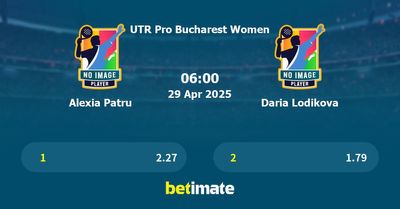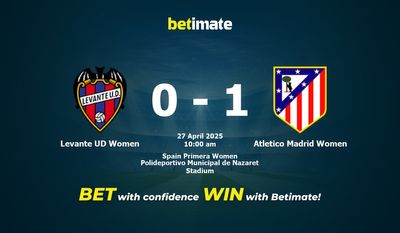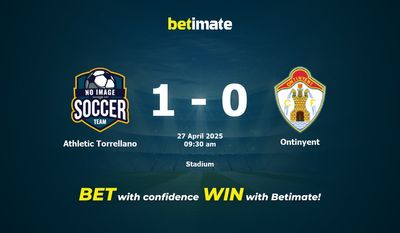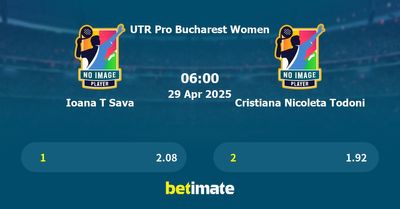Quick Betimate
Popular Leagues
Other Leagues
Mauricio Pochettino: The Football Genius Behind the Touchline

Mauricio Pochettino is a renowned football manager known for his tactical acumen and ability to extract the best from his players. In this article, we will delve into the life and career of Mauricio Pochettino, exploring his journey from a player to one of the most respected coaches in the footballing world.
Early Life and Playing Career
Early Life and Childhood of Mauricio Pochettino
Born in Murphy, Argentina, on March 2, 1972, Mauricio Pochettino grew up in a modest family. His parents instilled in him a strong work ethic and a sense of discipline, values that would later become crucial in his footballing career. As a child, Pochettino showed an immense interest in sports, particularly football, and he began playing at a young age.
- Family Background and Upbringing
Pochettino's family had a profound influence on his upbringing. His father, Hector Pochettino, was a farmer, and his mother, Amelia Pochettino, worked as a waitress. Despite their humble background, they supported Mauricio's dreams and encouraged his passion for football.
- Introduction to Football
Pochettino's passion for football flourished during his early years. He joined a local youth team and quickly caught the attention of scouts with his exceptional skills and dedication. As a teenager, Pochettino dreamed of emulating his footballing idols and making a name for himself in the sport.

Pochettino's passion for football flourished during his early years
Journey as a Professional Player
Pochettino's journey as a professional player began in Argentina, where he showcased his talents in various clubs before making a move to Europe.
- Playing Career in Argentina
In his homeland, Pochettino played for Newell's Old Boys, one of Argentina's prominent clubs. It was here that he honed his skills and gained valuable experience, eventually becoming a key figure in the team's defense. Pochettino's performances attracted attention from European clubs, leading to an opportunity that would change the course of his career.
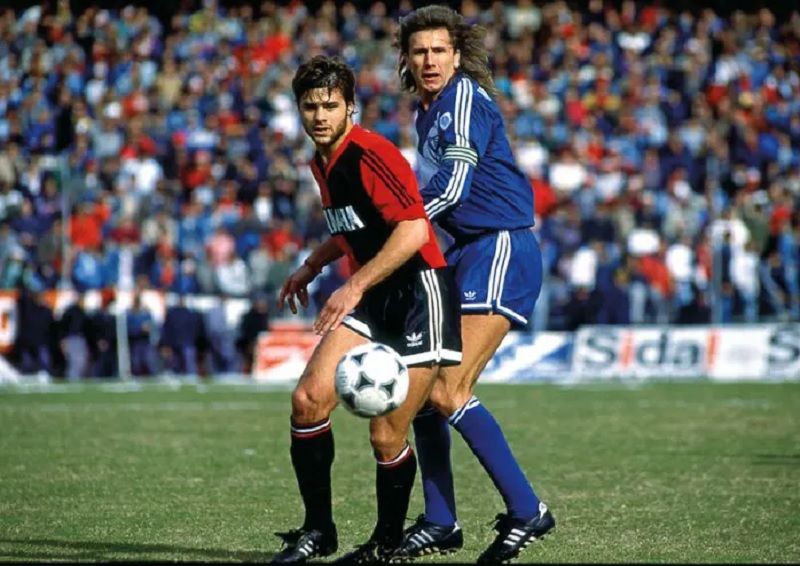
Pochettino played for Newell's Old Boys, one of Argentina's prominent clubs
- Move to Europe and Notable Clubs
In 1994, Pochettino joined Espanyol, a Spanish club based in Barcelona. This move marked the beginning of his European adventure and introduced him to a new level of competition. Pochettino quickly became a fan favorite at Espanyol, showcasing his defensive prowess and leadership skills on the pitch.
Achievements and Highlights
Throughout his playing career, Pochettino achieved several notable milestones and experienced success both domestically and internationally.
- Domestic Successes
At Espanyol, Pochettino played a vital role in the club's triumph in the 2000 Copa del Rey, where they defeated Real Zaragoza in the final. This victory brought immense joy to the fans and solidified Pochettino's reputation as a reliable and talented defender.
- International Career
Pochettino also represented the Argentine national team, earning caps and participating in major tournaments. One of his most memorable moments came in the 2002 FIFA World Cup, where he scored a crucial goal against England in the Round of 16, securing Argentina's progression in the tournament.
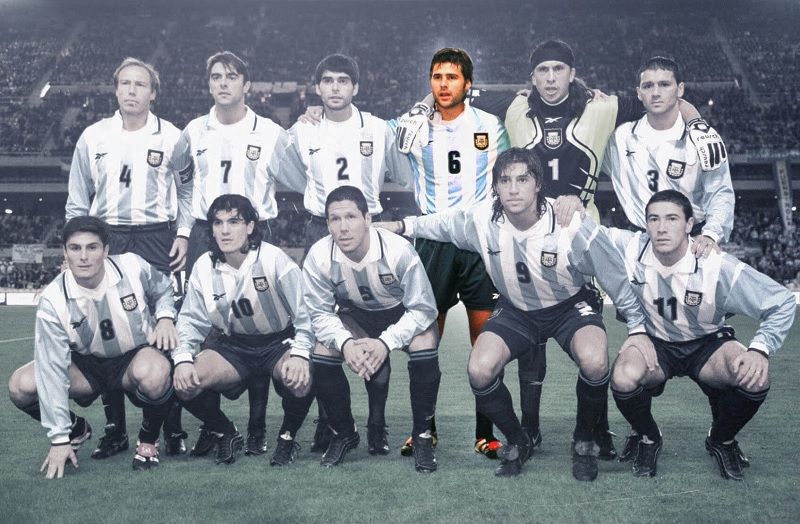
Pochettino also represented the Argentine national team, earning caps and participating in major tournaments
Transition to Coaching
After retiring as a player in 2006, Pochettino took a leap of faith and ventured into coaching. Several factors influenced his decision, including his passion for the sport, a desire to make a lasting impact, and the knowledge he had gained throughout his playing career.
- Factors that Influenced Pochettino's Decision
Pochettino's deep understanding of the game and his ability to analyze and strategize made coaching a natural progression for him. He was motivated by the opportunity to mold young talents and shape their footballing careers, just as his own had been influenced by coaches during his playing days.
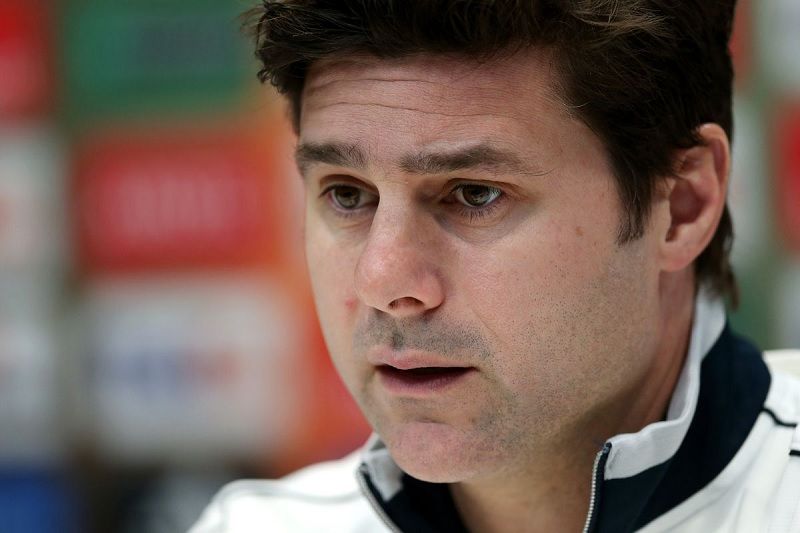
Pochettino's deep understanding of the game and his ability to analyze and strategize
- Early Coaching Experiences
Pochettino's initial coaching experiences took place at Espanyol, the club where he had enjoyed a successful playing career. He embraced the challenges that came with coaching and quickly established his reputation as a meticulous and forward-thinking manager.
Coaching Style Influenced by Playing Career
Pochettino's playing career significantly influenced his coaching style, shaping his approach to the game and the principles he instills in his teams.
- Emphasis on Pressing and High-Intensity Play
Pochettino's teams are renowned for their high-intensity pressing, where players relentlessly chase and harass opponents to regain possession. This approach reflects Pochettino's own playing style, characterized by his tenacity and work rate on the field.
- Defensive Organization and Tactical Astuteness
Drawing from his experience as a defender, Pochettino places great importance on defensive organization and tactical astuteness. His teams are well-drilled, disciplined, and difficult to break down, often conceding few goals and frustrating opposing attackers.
Espanyol: The Foundation
Pochettino arrived at Espanyol in January 2009, taking charge of a team struggling in the bottom half of La Liga. His appointment brought renewed hope to the club, and his tenure turned out to be a turning point in Espanyol's history. Upon his arrival, Pochettino quickly implemented a fresh and progressive style of play, focusing on high-intensity pressing and disciplined defensive organization. He emphasized the importance of collective effort and instilled a strong work ethic within the squad.
Tactical Innovations Implemented
High-Intensity PressingOne of the most notable tactical innovations introduced by Pochettino was the concept of high-intensity pressing. This approach involved pressing the opposition aggressively in their own half, denying them time and space to build attacks. Pochettino's Espanyol became renowned for their relentless pressing, which disrupted opponents' rhythm and forced mistakes.
- Defensive Organization and Compactness
Pochettino's emphasis on defensive organization was evident in his team's disciplined approach. Espanyol became well-drilled in maintaining a compact shape, making it difficult for opponents to penetrate their defensive lines. The defensive solidity under Pochettino laid the foundation for the team's success.
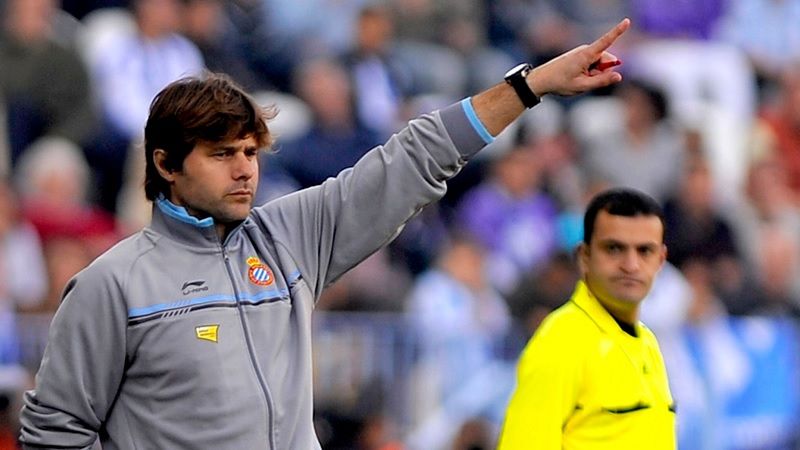
Pochettino's emphasis on defensive organization was evident in his team's disciplined approach
- Building from the Back
Pochettino encouraged his players to play out from the back, promoting a possession-based style of play. This tactical approach ensured that Espanyol could control the game, dictate the tempo, and create attacking opportunities from deep positions.
- Flexible Formations
Pochettino displayed tactical flexibility by adapting formations based on the strengths of the players available. He utilized various formations, such as the 4-2-3-1, 4-3-3, and 4-4-2, depending on the opposition and the match situation. This adaptability allowed Espanyol to remain unpredictable and provided different options for attack.
Youth Development and Squad Management
Pochettino recognized the importance of youth development and the role of the club's academy. He implemented a strategy to nurture young talents and create a pathway for their integration into the first team.
- Focus on Youth Academy
Under Pochettino's guidance, the Espanyol youth academy received increased attention and investment. He worked closely with the academy staff to improve training methods and ensure a seamless transition for young players into the senior team.
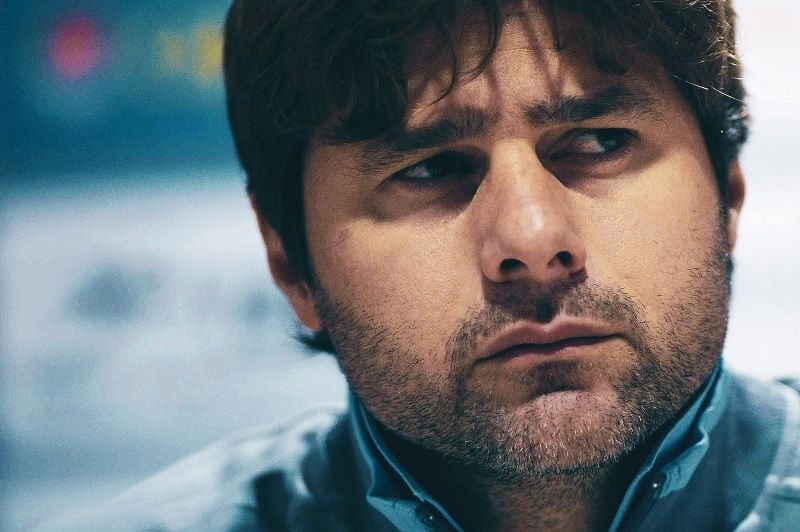
Under Pochettino's guidance, the Espanyol youth academy received increased attention and investment
- Promoting Homegrown Talent
Pochettino gave numerous opportunities to homegrown players, promoting a sense of belonging and identity within the club. Players like Sergio Garcia and Javi Marquez flourished under his guidance, becoming vital contributors to the team's success.
- Nurturing Player Development
Pochettino's hands-on approach to player development was instrumental in unlocking the potential of several individuals. He provided personalized guidance, tailored training programs, and constant feedback to help players improve their skills and reach their full potential.
Effective Squad Rotation
Pochettino recognized the importance of squad depth and the need for rotation to maintain freshness and avoid burnout. He managed the squad efficiently, ensuring that players were given rest when needed while maintaining a competitive edge in each game. Pochettino's tenure at Espanyol was characterized by the establishment of a strong team identity, which resonated with both the players and the fans.
- Playing Attacking Football
Pochettino encouraged his team to play attractive and attacking football. Espanyol became known for their fluid passing, quick transitions, and creative attacking play, captivating the supporters and making them a force to be reckoned with.
- Intense Work Ethic
Pochettino instilled a tireless work ethic within the squad, demanding maximum effort in every training session and match. Players were required to give their all on the pitch, running relentlessly and pressing opponents relentlessly.
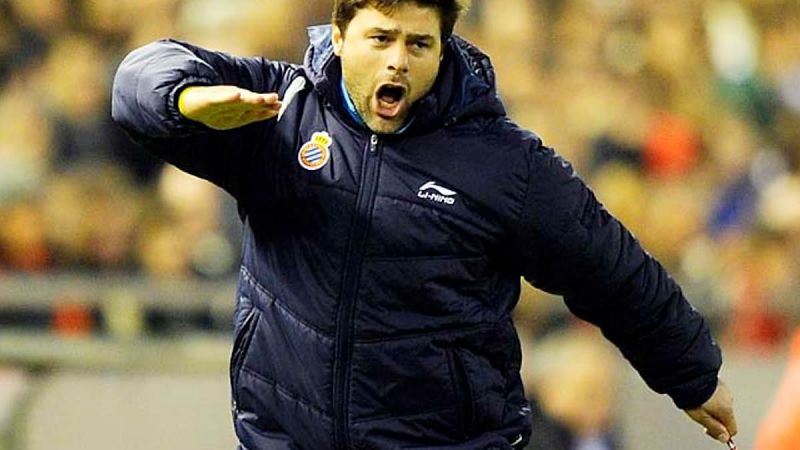
Pochettino instilled a tireless work ethic within the squad
- Unity and Team Spirit
Pochettino fostered a strong sense of unity and camaraderie within the team. He emphasized the importance of collective effort, teamwork, and a strong bond between players, creating a cohesive unit that fought for each other on the pitch.
- Strong Pressing Game
Espanyol's aggressive pressing game became a trademark of Pochettino's managerial approach. The team's ability to win the ball back quickly and disrupt opponents' play led to increased possession and scoring opportunities.
Achievements and Success
During Pochettino's tenure, Espanyol experienced a period of relative success and stability.
- Mid-table Stability
Under Pochettino's guidance, Espanyol established themselves as a stable mid-table team in La Liga. They consistently finished in respectable positions, avoiding relegation battles and maintaining a level of consistency in their performances.
- European Qualification
Pochettino led Espanyol to qualify for European competitions, including the UEFA Europa League. This achievement provided the players with valuable exposure to international football and raised the profile of the club.
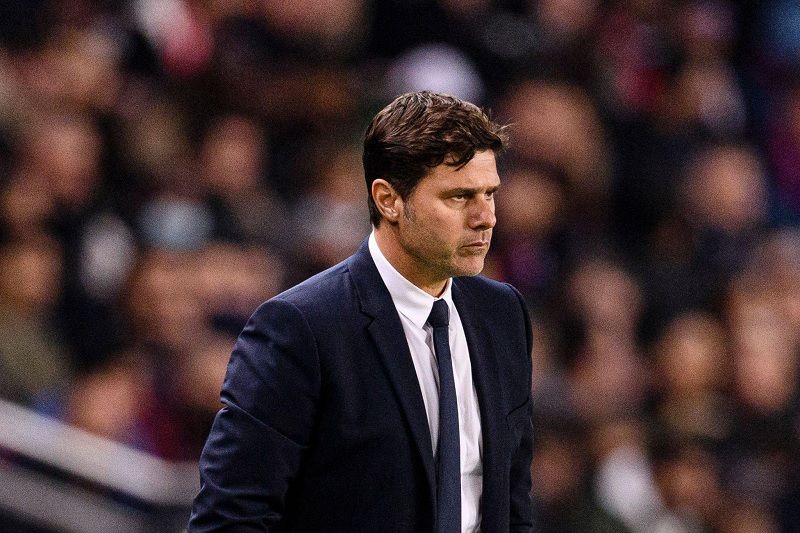
Pochettino led Espanyol to qualify for European competitions
- Copa del Rey Runners-up
One of the highlights of Pochettino's tenure was reaching the final of the Copa del Rey in the 2011-2012 season. Although they narrowly missed out on the trophy, their impressive cup run showcased the progress made under Pochettino's leadership.
Pochettino's success at Espanyol brought the club increased recognition and respect within Spanish football. Their strong performances and tactical innovations made them a team to watch and provided a solid foundation for future achievements.
Pochettino's Departure and Legacy
Despite his significant contributions, Pochettino eventually parted ways with Espanyol in 2012. However, his impact on the club remained indelible. His tactical innovations focus on youth development, and establishment of a strong team identity laid the groundwork for future success and influenced the club's trajectory in the years that followed.
Pochettino's tenure at Espanyol was a period of transformation and progress. Through his tactical innovations, emphasis on youth development, and establishment of a strong team identity, he left a lasting impact on the club. His time at Espanyol showcased his managerial skills and set the stage for his subsequent success at other top clubs.
Southampton: The Premier League Arrival
When Mauricio Pochettino was appointed as the manager of Southampton FC in January 2013, it marked a significant moment in the club's journey.
Pochettino's Appointment as Southampton Manager
Mauricio Pochettino's appointment as Southampton's manager brought a fresh perspective and a clear vision for the club's future. With his previous experience at Espanyol in La Liga, Pochettino was known for his tactical acumen and ability to develop young players. Southampton's board recognized these qualities and saw Pochettino as the ideal candidate to take the club forward.
Revolutionizing Southampton's Playstyle
Under Pochettino, Southampton adopted a high-pressing style of play that aimed to disrupt opponents' build-up play and regain possession quickly. This tactical approach required intense physicality, discipline, and relentless work rate from the players. Pochettino emphasized the importance of pressing as a team, with all players actively involved in closing down spaces and putting pressure on the opposition.
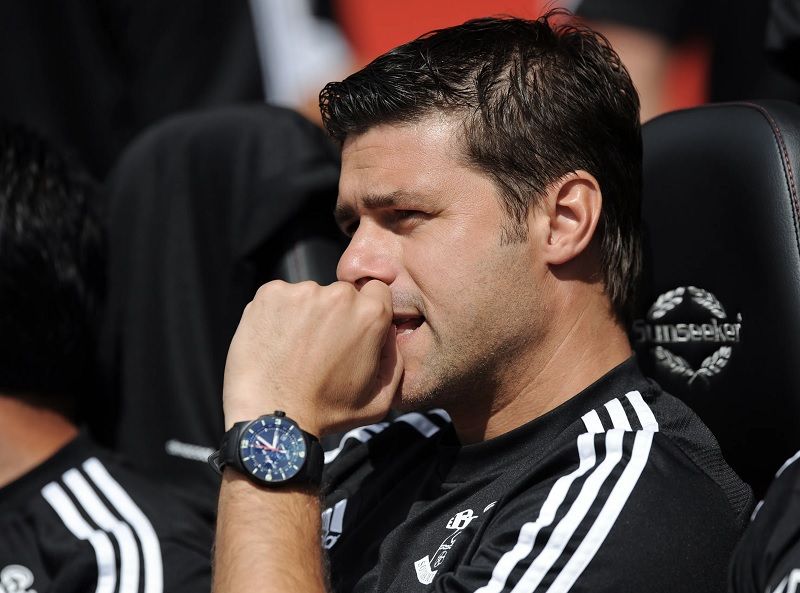
Under Pochettino, Southampton adopted a high-pressing style of play
Pochettino's Impact on Southampton
Pochettino's arrival had an immediate impact on Southampton's performance and overall standing in the Premier League. The implementation of the high-pressing style brought a new level of energy and intensity to the team's play, catching many opponents off guard. Southampton quickly became known for their pressing game and started to gain recognition as one of the league's most exciting teams to watch.
Tactical Innovations
Pochettino's tactical innovations played a crucial role in Southampton's success. He introduced new training methods to improve players' fitness and conditioning, allowing them to sustain the high-pressing style throughout the season. Pochettino's meticulous attention to detail and focus on tactical intelligence helped Southampton gain an edge over their opponents.
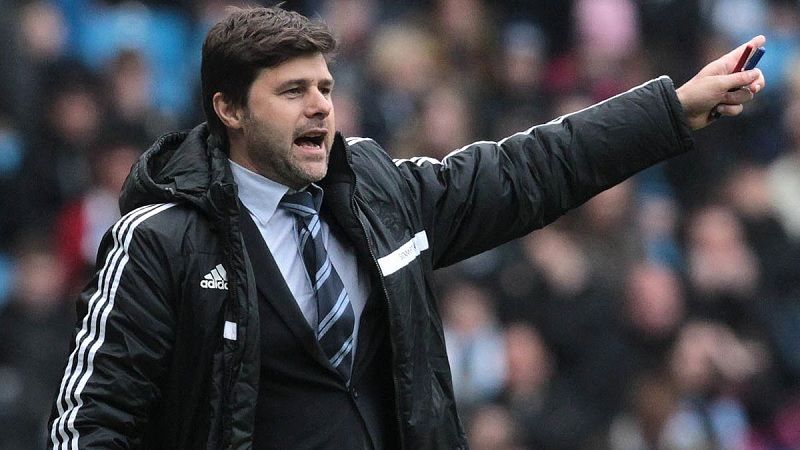
Pochettino's tactical innovations played a crucial role in Southampton's success
One of the notable improvements under Pochettino was the team's defensive organization. Through effective pressing and well-drilled defensive units, Southampton became a resilient side that was difficult to break down. Pochettino's emphasis on defensive stability laid the foundation for the team's success and allowed them to compete against stronger opposition.
Enhancing Player Development
Pochettino's ability to develop young players was instrumental in Southampton's rise. He placed a strong emphasis on youth development, giving opportunities to talented academy graduates. Under Pochettino's guidance, players like Luke Shaw, Adam Lallana, and James Ward-Prowse flourished, attracting attention from bigger clubs while contributing to Southampton's success on the pitch.
While the high-pressing style prioritized defensive solidity, Pochettino also instilled attacking fluidity and creativity into Southampton's gameplay. The team showcased dynamic movement, quick passing, and incisive attacking play, which led to an increase in goals scored. Pochettino's philosophy encouraged players to express themselves and take risks, resulting in an entertaining brand of football.
Results and Achievements
During Pochettino's tenure, Southampton achieved impressive results and climbed up the Premier League table. The team secured notable victories against top clubs and consistently finished in the top half of the league. Their performances earned them qualification for European competitions, highlighting the remarkable progress made under Pochettino's guidance.
Positive Reception and Legacy
Pochettino's tenure at Southampton left a lasting legacy. His innovative tactics, commitment to youth development, and the team's attractive style of play earned him widespread acclaim. Southampton's rise under Pochettino showcased the potential of a well-executed vision and demonstrated how a relatively smaller club could compete with the Premier League's elite.
Tottenham Hotspur: The Pochettino Revolution
Tottenham Hotspur, one of the most renowned football clubs in England, experienced a significant transformation under the guidance of manager Mauricio Pochettino. The Argentine tactician arrived at Spurs in 2014, embarking on a journey that would redefine the club's identity and lead to remarkable achievements.
Pochettino's Arrival
- Impact on the Club
When Pochettino took charge of Tottenham in 2014, the club was in need of a new direction. His arrival instilled a sense of belief and ambition within the squad, ultimately elevating the team's performance on the field. Pochettino's strong leadership qualities and ability to inspire his players played a vital role in Tottenham's resurgence.
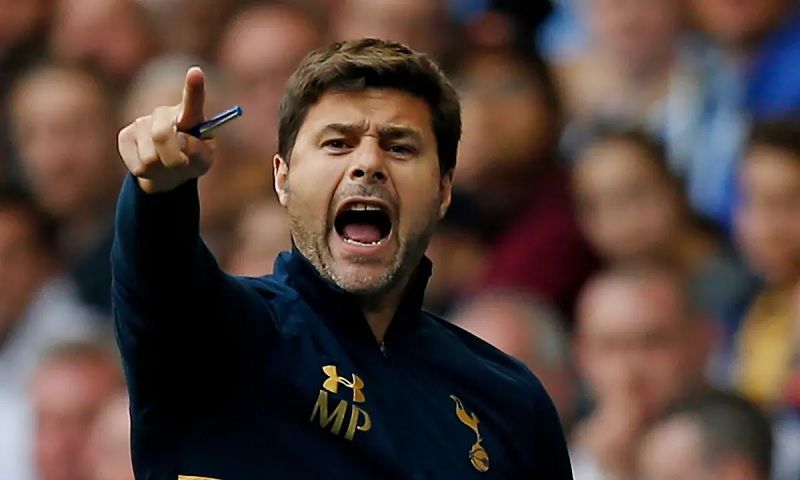
Pochettino's strong leadership qualities and ability to inspire his players played a vital role
- Tactical Philosophy
Pochettino implemented a distinct tactical philosophy at Tottenham, focusing on high-pressing and aggressive play. His emphasis on intense work rate, pressing opponents to regain possession, and quick transitions showcased his commitment to an attractive and attacking style of football.
Building a Cohesive Team
- Youth Development
One of Pochettino's key contributions was his commitment to nurturing young talent. He provided opportunities to academy graduates, such as Harry Kane and Dele Alli, who blossomed under his guidance. Pochettino's belief in developing homegrown players helped create a strong foundation for the team's future success.
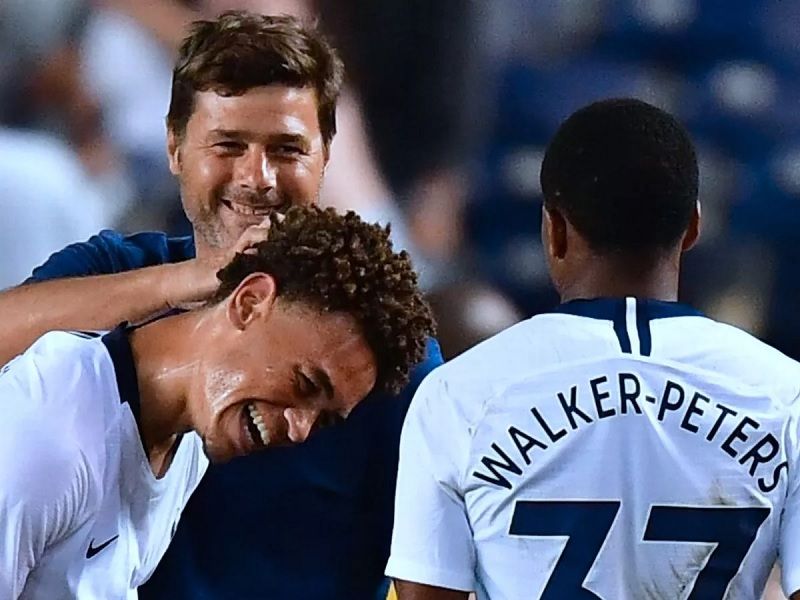
One of Pochettino's key contributions was his commitment to nurturing young talent
- Squad Restructuring
Pochettino also reshaped the squad by bringing in key signings who aligned with his tactical philosophy. He focused on recruiting players with a hunger for success and a willingness to adapt to his system. This strategic approach resulted in a more cohesive and balanced team that complemented Pochettino's playing style.
Progressive Playing Style
- High-Pressing Game
Pochettino's high-pressing game became a trademark of Tottenham's playing style. The team displayed relentless energy, pressing opponents all over the pitch to disrupt their build-up play. This approach not only showcased Pochettino's tactical acumen but also made Tottenham a formidable force in the Premier League.
- Emphasis on Attacking
Under Pochettino, Tottenham became synonymous with attacking football. His teams showcased fluid movement, intricate passing, and an aggressive mindset in the final third. This attacking approach not only thrilled the fans but also led to an increase in goals and exciting performances.
Notable Achievements
- Premier League Title Challenge
During Pochettino's tenure, Tottenham mounted a strong challenge for the Premier League title. In the 2015-2016 and 2016-2017 seasons, they finished in the top three, showcasing their progress and ability to compete with the league's elite. Pochettino's tactical prowess and man-management skills played a crucial role in the team's success.
- Champions League Run
Pochettino's most remarkable achievement was guiding Tottenham to the UEFA Champions League final in the 2018-2019 season. The team showcased determination and resilience throughout the tournament, producing memorable comebacks against top European sides. Although they fell short in the final, their journey marked a significant milestone for the club.
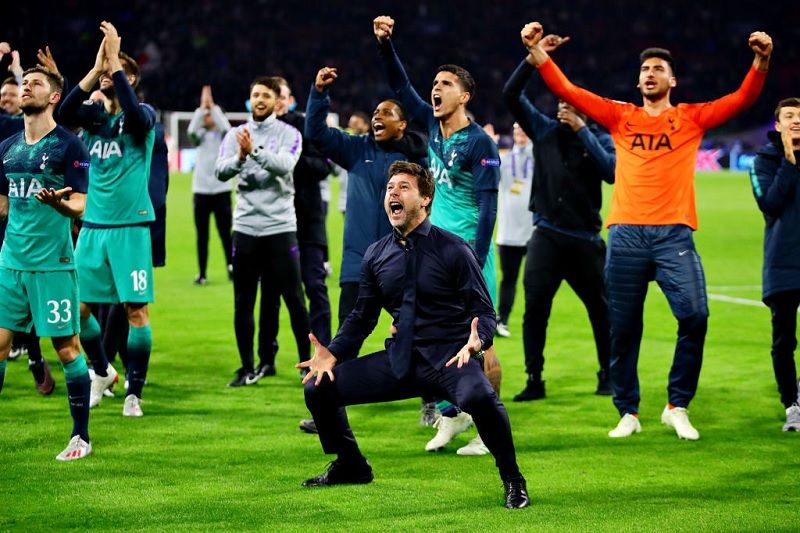
Pochettino's most remarkable achievement was guiding Tottenham to the UEFA Champions League final
Memorable Moments
- Derby Victories
Pochettino's tenure saw several memorable victories against Tottenham's local rivals, including Arsenal and Chelsea. These wins not only brought bragging rights to the fans but also demonstrated the team's ability to rise to the occasion and deliver on big occasions.
- Comeback Wins
Tottenham under Pochettino had a knack for dramatic comebacks. They displayed a never-say-die attitude, overturning deficits and securing crucial victories. These thrilling comebacks further enhanced Pochettino's reputation as a manager capable of motivating his team in challenging circumstances.
Champions League Final: The Heartbreak
The Road to the Final: Tottenham's Remarkable Campaign
- The Group Stage Triumphs and Challenges
Tottenham's Champions League campaign began with an arduous group stage, facing strong opponents like Barcelona and Inter Milan. Pochettino's tactical approach and the resilience of his squad allowed them to secure impressive victories and qualify for the knockout rounds.
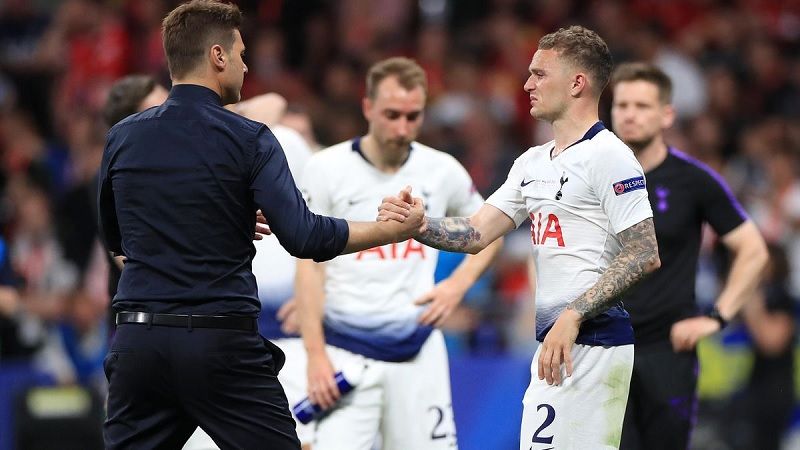
Tottenham's Champions League campaign began with an arduous group stage
- Navigating the Knockout Rounds
As Tottenham advanced to the knockout rounds, they faced tough challenges, including a formidable matchup against Borussia Dortmund. Pochettino's astute management and the exceptional performances of players like Harry Kane and Son Heung-min propelled the team forward.
- Semifinal Drama Against Ajax
The semifinal clash against Ajax proved to be a defining moment in Tottenham's campaign. After losing the first leg, Pochettino's inspirational team talk and a breathtaking second-leg comeback showcased the team's resilience and unwavering spirit.
The Final Showdown: Tottenham vs. Liverpool
- Pre-Match Expectations and Tactics
As Tottenham prepared to face Liverpool in the final, expectations were high. Pochettino meticulously strategized to counter Liverpool's attacking prowess while leveraging his team's strengths. The battle of wits between Pochettino and Jurgen Klopp added an intriguing dimension to the clash.
- Key Moments and Turning Points
The final was a tightly contested affair, with both teams displaying moments of brilliance. From Mohamed Salah's early penalty to Divock Origi's clinching goal, each moment played a crucial role in shaping the outcome of the match. Pochettino's tactical adjustments and substitutions injected renewed energy into Tottenham's gameplay.
- Liverpool's Triumph and Tottenham's Heartbreak
Ultimately, it was Liverpool who emerged victorious, clinching their sixth Champions League title. For Tottenham, the defeat brought heartbreak and disappointment. Pochettino's emotions were palpable as he witnessed his dreams of European glory shattered.
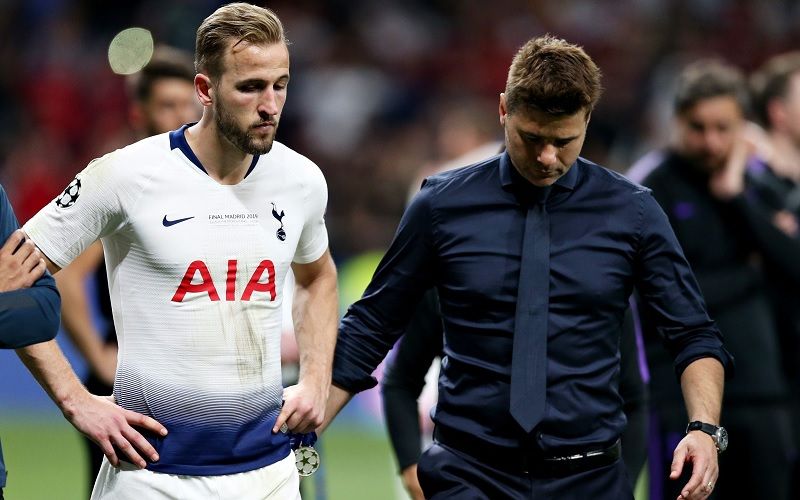
For Tottenham, the defeat brought heartbreak and disappointment
Impact on Mauricio Pochettino and the Team
- Emotional Rollercoaster for Pochettino
The final's outcome took a toll on Pochettino, who had poured his heart and soul into guiding Tottenham on this incredible journey. The immense pressure and the weight of expectations contributed to an emotional rollercoaster for the passionate manager.
- Learning from Defeat
While defeat was hard to swallow, Pochettino and his team sought lessons from the experience. They recognized the areas where improvements were needed and vowed to come back stronger in future campaigns. The resilience and determination displayed by Pochettino reflected his unwavering commitment to success.
- Aftermath and Reflection
The aftermath of the final allowed Pochettino and his team to reflect on their achievements and the path they had taken. Despite the heartbreak, the journey to the final instilled a sense of pride and unity within the club. Pochettino's impact on Tottenham's growth and success was evident, even in defeat.
Paris Saint-Germain: The Next Chapter
Paris Saint-Germain (PSG), one of the most prestigious football clubs in Europe, has recently made headlines with the appointment of Mauricio Pochettino as their manager. This decision marks the beginning of a new chapter for the club, as they aim to consolidate their position as a football powerhouse.
Pochettino's Appointment as PSG Manager
Mauricio Pochettino's appointment as PSG manager comes at a crucial juncture for the club. After a series of successful seasons under previous managers, PSG is now looking to push their limits and achieve even greater glory. Pochettino's proven track record as a manager makes him an ideal candidate for this role.
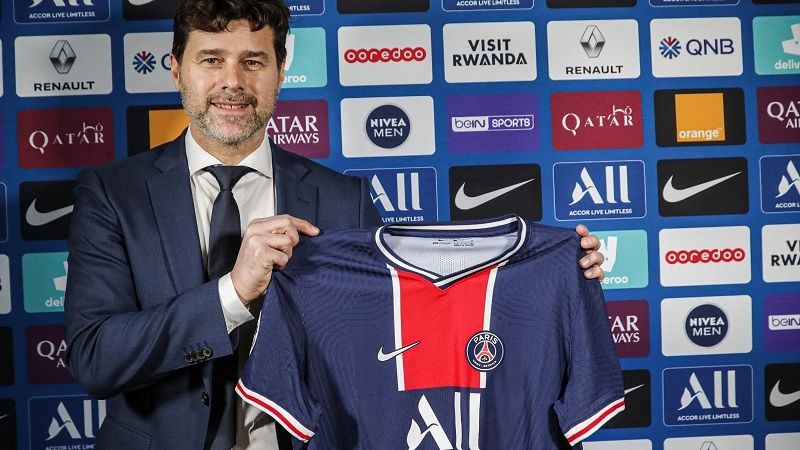
Mauricio Pochettino's appointment as PSG manager comes at a crucial juncture for the club
Pochettino's rise to prominence as a manager began during his tenure at Southampton and later at Tottenham Hotspur. His tactical acumen, man-management skills, and ability to develop young talents earned him accolades in the footballing world. Now, with PSG, Pochettino aims to continue his success and guide the team to new heights.
Challenges Faced by Pochettino
- Managing a Star-Studded Squad
One of the significant challenges that Pochettino faces at PSG is managing a star-studded squad. With players like Neymar, Kylian Mbappé, and Lionel Messi, the expectations are sky-high. Pochettino must strike a delicate balance between accommodating the individual brilliance of these players while ensuring a cohesive team dynamic.
- Balancing Egos and Team Dynamics
In a team filled with superstars, managing egos becomes crucial. Pochettino must create an environment where every player feels valued and motivated to perform at their best. Building strong team chemistry and fostering a sense of unity will be key to PSG's success under Pochettino's leadership.
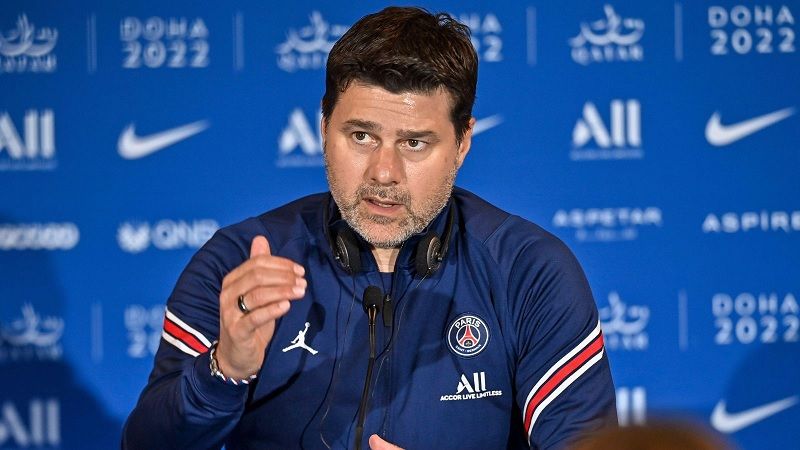
Pochettino must create an environment where every player feels valued and motivated
- Tactical Adjustments and Player Development
Pochettino's tactical acumen will be put to the test as he adapts his strategies to the strengths and weaknesses of the PSG squad. He must identify the right balance between attacking prowess and defensive stability. Additionally, nurturing young talents and maximizing their potential will play a vital role in shaping the team's future.
Expectations for Pochettino at PSG
- Pursuit of Domestic Success
PSG has dominated French football in recent years, winning multiple league titles. However, the expectations remain high for Pochettino to continue this trend of domestic success. The manager will be under pressure to maintain PSG's dominance in Ligue 1 while also developing a playing style that captivates fans.
- Champions League Aspirations
PSG's ultimate goal is to conquer Europe by winning the UEFA Champions League. Despite reaching the final in 2020, they fell short of clinching the trophy. Pochettino's appointment signals the club's ambition to finally secure the elusive Champions League title and establish themselves as a force to be reckoned with on the continental stage.
- Building a Long-Term Legacy
Beyond immediate success, Pochettino's task at PSG is to build a sustainable long-term legacy. This involves not only achieving short-term goals but also implementing a strategic vision that ensures the club's continued success even after his tenure. Pochettino's experience and leadership will be instrumental in shaping the future of PSG.
Tactical Philosophy and Playing Style
Pochettino's Tactical Philosophy
- Formation Preferences
Pochettino demonstrates flexibility in his formations, but he often favors a variation of the 4-2-3-1 system. This formation provides solidity in defense, a strong midfield presence, and multiple attacking options. It allows for quick transitions between defense and attack, offering balance and versatility on the field.
- Pressing Systems
One of Pochettino's defining features is his emphasis on high-pressing and counter-pressing. His teams relentlessly apply pressure on opponents, seeking to disrupt their build-up play and force turnovers in dangerous areas. This aggressive approach requires exceptional fitness levels and coordination among players.
- Attacking Strategies
In the attacking phase, Pochettino's teams display a combination of directness and creativity. They look to exploit spaces left by opponents and make incisive forward passes. Pochettino encourages attacking players to interchange positions, creating confusion for the opposition's defense. Quick transitions and well-timed runs are key components of his attacking strategies.
High Pressing and Counter-Pressing
- Implementing Intense Pressure
Pochettino's teams are renowned for their high-intensity pressing. Players apply pressure on opponents as soon as they lose possession, aiming to regain the ball quickly. This approach disrupts the opposition's rhythm and limits their time on the ball, forcing rushed decisions and potential turnovers.
- Forcing Turnovers and Regaining Possession
Counter-pressing is another vital aspect of Pochettino's tactical philosophy. His teams immediately engage in pressing after losing possession, seeking to win the ball back before opponents can organize their attacks. This proactive approach often leads to turnovers in dangerous areas, providing immediate opportunities to launch quick counter-attacks.
Fluidity and Versatility in Formations
- Adapting to Opponent's Style
Pochettino's tactical flexibility allows his teams to adapt to different opponents. He analyzes the strengths and weaknesses of the opposition and tailors his formation and strategy accordingly. This adaptability ensures his teams can exploit vulnerabilities in the opposition's playing style, maximizing their chances of success.
- Switching Formations Mid-Match
Pochettino is not afraid to make tactical adjustments during a game. He is known to switch formations mid-match, surprising opponents and creating new challenges for them to overcome. This flexibility keeps the opposition guessing and gives his team a competitive edge.
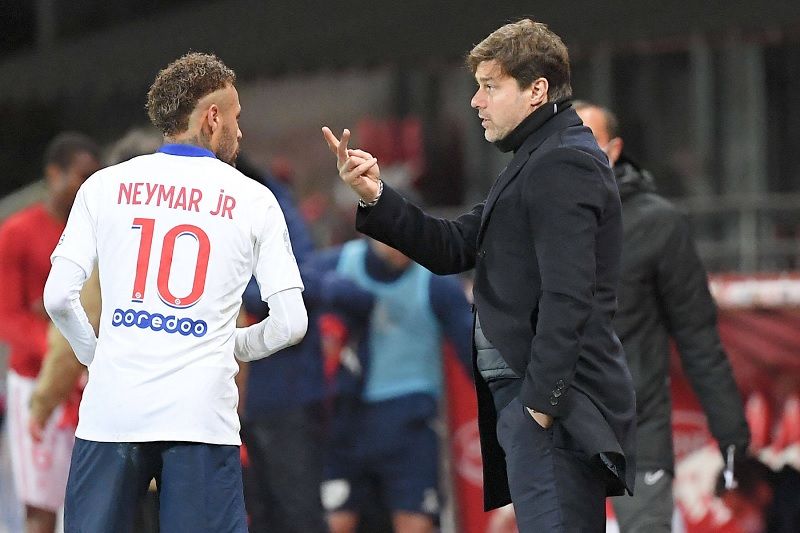
Pochettino is not afraid to make tactical adjustments during a game
Emphasis on Teamwork and Collective Effort
- Gegenpressing and Defensive Compactness
Pochettino places great importance on defensive solidity and teamwork. His teams employ gegenpressing, a pressing strategy that involves the entire team working together to win the ball back immediately after losing it. This coordinated effort prevents opponents from launching counter-attacks and ensures defensive compactness.
- Coordinated Attacking Movements
In the attacking phase, Pochettino's teams exhibit coordinated movements. Players make intelligent runs, exploiting spaces created by their teammates' positioning. This intricate interplay allows for quick passing combinations and increases the chances of breaking through the opposition's defense.
Tactical Adjustments in Big Matches
- Analyzing Opponent's Weaknesses
In crucial matches against formidable opponents, Pochettino meticulously analyzes their weaknesses. He identifies areas where his team can exploit vulnerabilities in the opposition's structure or tactics. This attention to detail helps him formulate effective game plans and make tactical adjustments to gain an advantage.
- Making Tactical Changes
Pochettino's willingness to make bold tactical changes in important matches has yielded positive results. He is not afraid to take risks and adapt his strategies to counter the strengths of top-level opponents. This tactical flexibility sets him apart as a manager capable of delivering in high-pressure situations.
- The Impact of Pochettino's Philosophy
Pochettino's tactical philosophy has had a profound impact on the teams he has managed. His emphasis on high pressing, fluid formations, and collective effort has led to exciting and successful football. His teams often exhibit a distinct playing style that reflects his tactical acumen and the strong rapport he builds with his players.
Outside the Touchline: Pochettino's Humanitarian Efforts
Building Schools and Infrastructure in Argentina
Returning to his roots, Pochettino embarked on an ambitious project to build schools and improve infrastructure in underprivileged areas of Argentina. Recognizing the transformative power of education, he aimed to provide children with access to quality learning environments, empowering them to break free from the cycle of poverty.
Support for Healthcare and Education in Africa
Driven by a deep sense of global responsibility, Pochettino extended his humanitarian efforts beyond Argentina to Africa. Collaborating with charitable organizations, he supported initiatives focused on healthcare and education. Through these endeavors, Pochettino aimed to improve access to essential medical services and provide educational opportunities to vulnerable communities in Africa.
Partnerships with Charity Organizations
Pochettino's commitment to making a difference led him to establish partnerships with various charity organizations. By aligning with like-minded entities, he maximized the impact of his philanthropic endeavors, leveraging collective resources and expertise to address pressing social issues effectively.
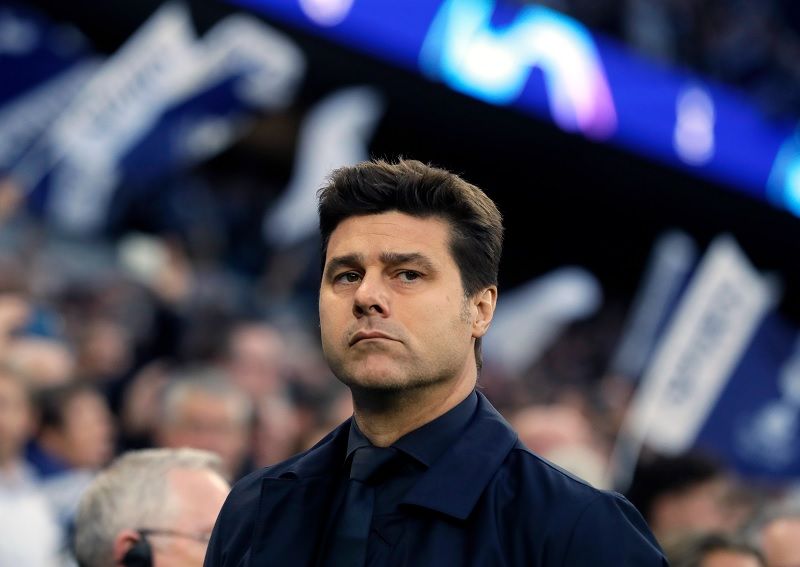
Pochettino's commitment to making a difference led him to establish partnerships with various charity organizations
Community Work and Social Impact
Beyond his philanthropic projects, Pochettino has actively engaged in community work, recognizing the importance of nurturing grassroots talent and promoting social cohesion. His efforts have had a profound impact on communities worldwide.
Empowering Youth through Sports
Pochettino firmly believes in the transformative power of sports, particularly for young people. He has been instrumental in creating programs and initiatives that provide access to sporting opportunities for disadvantaged youth. By using football as a tool for empowerment, Pochettino has helped young individuals develop essential life skills and build self-confidence.
Promoting Inclusion and Equality
In an era where diversity and inclusivity are paramount, Pochettino has consistently advocated for equality both on and off the pitch. He has been an active voice in campaigns against discrimination, using his platform to raise awareness and promote a more inclusive society. Pochettino's commitment to diversity underscores his belief that everyone should have an equal opportunity to succeed, regardless of their background.
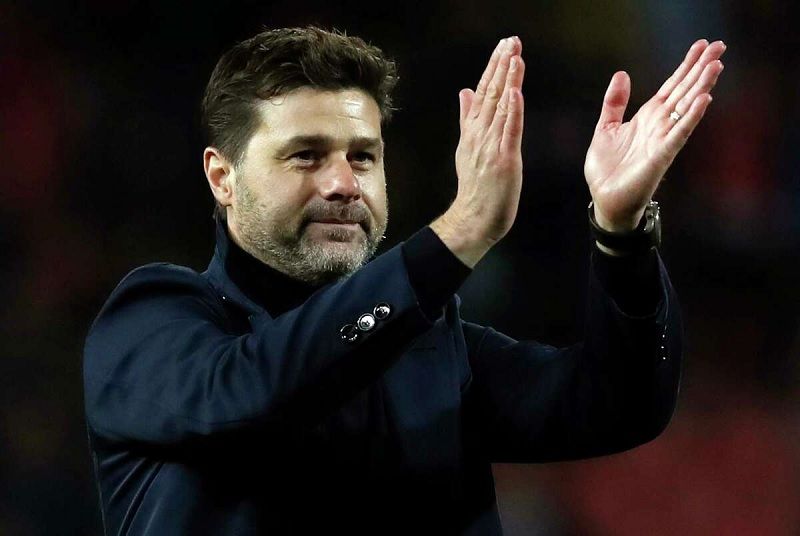
Pochettino has consistently advocated for equality both on and off the pitch
Providing Opportunities for Disadvantaged Communities
Recognizing the potential of football to act as a catalyst for change, Pochettino has worked tirelessly to create opportunities for disadvantaged communities. Through his initiatives, he has facilitated access to training, infrastructure, and resources that enable individuals from underprivileged backgrounds to pursue their dreams in the world of football.
Pochettino's Personal Motivation
At the core of Pochettino's philanthropic efforts lies a personal motivation deeply ingrained in his character. His experiences growing up in a modest environment and witnessing the struggles faced by marginalized communities have fueled his desire to effect meaningful change. Pochettino's unwavering dedication to humanitarian work serves as an inspiration to both players and fans alike, transcending the boundaries of the footballing world.
Recognition and Awards
Pochettino's exceptional contributions to society have not gone unnoticed. His humanitarian efforts have garnered widespread recognition, with numerous awards and accolades bestowed upon him. These honors not only acknowledge his achievements but also serve as a testament to the enduring impact of his work.
Managerial statistics
FAQs about Mauricio Pochettino
- Pochettino often favors formations such as the 4-2-3-1 and 4-3-3 setups, which provide a solid foundation for his attacking principles while maintaining defensive stability.
- Pochettino's pressing system involves aggressive coordinated movements and intelligent positioning to disrupt the opponent's build-up play, forcing turnovers in dangerous areas.
- Pochettino's teams prioritize quick transitions, verticality in play, and incisive passing to create direct goal-scoring opportunities against the opposition.
- Pochettino places significant emphasis on intense training sessions and physical fitness, enabling his teams to maintain pressing intensity and execute quickly attacking transitions effectively.
- Pochettino has achieved success in both domestic and international competitions, winning league titles, and domestic cups, and making memorable runs in European competitions.
Related Content

